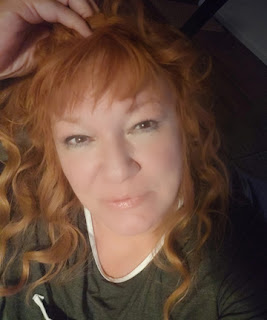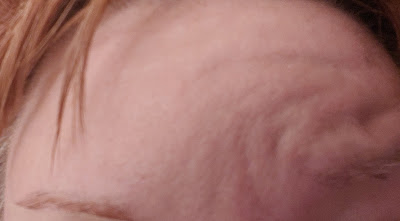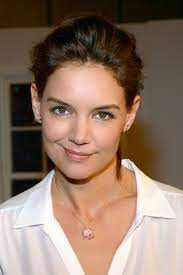Doctors are pretty inept with things like nutrition knowledge and Bell's palsy. Their educations are seriously lacking. And, sadly, most physical therapists gloss over the intricacy of the face to deal with knees and shoulders. This leaves sufferers of Bell's palsy absolutely baffled.
For each person, Bell's palsy arrives in a different manner. Some have had surgery that cut a nerve, some have autoimmune conditions that compromised the nerves, and others are left with the ER doc's bafflement. They are given antivirals, anti-inflammatories, and told to go home and basically sit it out.
The condition is not that uncommon at 1 in 5000, but it is a real puzzler for health care workers to understand. It begins with something that sets off an inflammation, often at the base of the skull at the bony prominence behind your ear. It usually hits one side of the face. That inflammation cuts off the nerves that exit the brain and head to the face to control its movements and sensations.
It may begin with a headache or earache and then you go to brush your teeth and realize your mouth is drooping on one side. Then, off to the ER to find out if it's a stroke.
The ER docs can immediately begin their differential diagnosis by having you try to lift your eyebrow and see if the forehead wrinkles or not. If the forehead cannot wrinkle, you very likely have Bell's palsy. They test your limbs and speech. Usually imaging is next and if they are thorough tons of viral labs.
It's believed a combination of immune compromise - virus condition, stress, diabetes, autoimmune disease, exhaustion, and even pregnancy can be precipitating factors.
In my case, I was under extreme stress, had pre-diabetes and didn't now it. I got a cold sore on the left lip and the next day I was hit with palsy.
Then, insult to injury, two months later, a cold sore on the right precipitated that side of my face going down too.
My mother and sister had it years ago. Both had rheumatoid arthritis and smoked so a high inflammatory process in their bodies.
My mother had just gone through my dad's heart attack and stress and my sister's house burned down the day before. If you don't think stress affects your immune system, rethink that.
I am very blessed that I had immediate relatives who lived through the condition because both were able to show me that at precisely 2-1/2 years they fully recovered on their own. If only one had said that, I'd figure maybe I'll be different, but with both like clockwork, I have more confirmation of what to expect. This would be put me at recovery this holiday season.
In general, the majority of folks have it a few weeks to months (66-86% in three weeks or less) and recover fine.
Some of us take longer and many report that it healed rapidly when they left a bad relationship, job, or other huge stressor. I have been swimming in stress since mine hit in June and August of 2021. My stress is about to relieve significantly and I hope that makes my healing even faster as I'm now at 25 and 23 months.
When it starts out, your eye won't close or blink. It dries out easily and your eye rolls upwards as you try to close it. You have to put eye drops in constantly and eye gel at night and use a patch to keep it from drying out (or tape the eye closed). Since at one time I had it on both sides, I wore a sleeping eye mask with eye gel in both eyes. I wore sunglasses to keep wind and sunlight from hurting the sensitive eyes as you can't really squint.
Chewing is especially difficult, so a soft diet is preferable and even during recovery small bites, softer foods, and slow chewing helps ward of synkinesis issues. As well, trying not to force the weak side to be as strong as the strong side is critical because that can also cause synkinesis.
What is synkinesis?
In most, it shows itself as another part of your face making up for weak muscles, so if you chew, your eye may want to close or squint tightly. This makes for public eating a self-conscious thing.
There are ways to combat that with stretching and massaging because over 3 months in, the muscles can tighten and one long muscle in the face being tight holds down the interwoven other muscles needed for finer expressions like open-mouth smile.
YouTube Channels I find very helpful -
Butheau Physiotherapy (this PT practitioner has had Bell's so he knows his stuff!)
The muscle tension occurs from the good side overcompensating for the weak side and this makes your brain send signals for the muscles to be "on the ready." You can tell when they're tight as speech is awkward, the frenulum (dimple between nose and lips) pulls to the strong side, and the strong side's nasolabial fold is very pronounced.
I learned to not only stretch and relax and add heat and massage to that side, I try to actually do the massage both sides so the brain begins to signal that both sides are together.
As well, I learned that you have to let the weak side tell you how far to go with expressions and strength. The strong side has to kind of adapt to the weaker slower expressions. You want the two sides to coordinate, but it's hard when one side is weaker.
Imagine, if you will, having to recoup from a broken leg you didn't walk on for months. You limp. It takes a long time for muscles to regain and in the mean time the strong leg takes on the load.
It's very easy as time plays out to just assume you aren't progressing with recovery, but it's critical to do weekly photos as you will often find you can do something you didn't realize you could.
Around the 2-year point I noticed more and more progress and I attribute that to my often stretching (you have to put the hand inside the mouth to help with this motion - check out that Butheau channel link above), and adequate sleep, reducing stress where I can, and being conscious of how I hold my face muscles tightly and forcing them to go slack - usually as simply as opening my jaw a bit to let it sag and draw the muscles down with it.
I discovered recently I could use a straw with my lips without holding it in place with my fingers. Before, my lips had no voluntary motion or strength to press closed for puffing out cheeks or holding a straw between them and bouncing it. Now, they are working together more and more.
Getting the lips to actually move is extremely hard and that's because of the cheek hollow muscles and muscles at the lower corners of mouth that are very tight.
I spontaneously recently found I could also fold my tongue, whistle, and my eye no longer waters when I eat.
Often at the end of the day, I find my speech becomes Cindy Brady or Sylvester Cat sounding because muscles are so very tight. Hot cloths, massage all help.
Many try acupuncture, botox, and even surgery to deal with the outcomes of Bell's palsy when it doesn't fully recover.
There hasn't been any consistent proof that any work, but if you believe they work, they can have a wonderfully positive effect.
I try to look at it this way - my face gets olive oil massages a few times a day and I'm working the muscles. It's getting attention it never got when I took it for granted. When I do recover fully, I will have a helluva youthful face.
There's a great support group on Facebook I'm part of and suggest!
Bell's Palsy and Facial Paralysis Support Group
I've been known all my life for my big spirited smile that comes from a wellspring of hope and excitement deep inside me.
It's hard to have resting bitch face so much of the time. That people purposely botox away their expressions makes me want to shake them by the shoulders! Getting forehead wrinkles makes me so ecstatic. This is the way that bad things bring about small blessings.
I am preparing to act in a major film going to theaters. I can't tell anymore than that at this point, but I go into the task with the face I have now. I go bravely and holding my head up and no shame. I won't let the lack of full expressions to keep me from being the inner personality that I have always been.
For those suffering Bell's palsy, stand back and archive the experience, look at the photos of this person who is indomitable, and know that improvements creep up bit by bit as you go along.
Remember - Katie Holmes has a beautifully smirky smile from hers.
Sylvester Stallone was born with a similar situation of paralysis to mouth and tongue. He chose growing up to focus on body building, living a great example of the Serenity Prayer - finding what he could control and focusing on that and letting go of what he couldn't control.
Set your own standard for beauty and be especially kind to this person who stares you back in the mirror - he/she has gained a new life experience and perspective (and is never alone).
It's very easy with Bell's palsy (long term) to cures fates and grieve constantly over what you had. The resilient learn to adapt.
It took me a long time to quit putting a disclaimer every time i met someone, "first let me tell you I have Bell's palsy and I'm in recovery so this isn't how I normally look or sound."
I do find it's now second nature to put a hand to my mouth if I laugh or smile. That's an adaptation. I learned in public to take tiny bites and eat slowly so my eye doesn't want to close as I chew. This synkinesis involving eye and mouth can be combated and retrained, but when you chew you have to look to the upper corner on that side or close your eyes. I just hold my eyebrow in place so the eye can't close off.
I stop during the day and often stretch and massage face muscles to try and loosen them. By the end of the day muscles can get so tight, I have trouble talking without feeling restricted.
It's kind of like awakening and having a face decades older. You missed the part where you aged over time. But, eventually life does go on and you make adaptations to deal with it and you think about it less and less throughout your days.
We are stronger than any physical strikes. We are bolder than our prior selves. We are compassionate at new levels.










Hold on to hope, my friend,
ReplyDeleteAnd don't give up the fight.
For even in the darkest of nights
There is always light.
Though your body may be weak
And your spirit may be low,
Know that you are strong,
And you will overcome this blow.
So keep your head up high,
And face your battle heated.
For you are a warrior
And you will not be defeated.